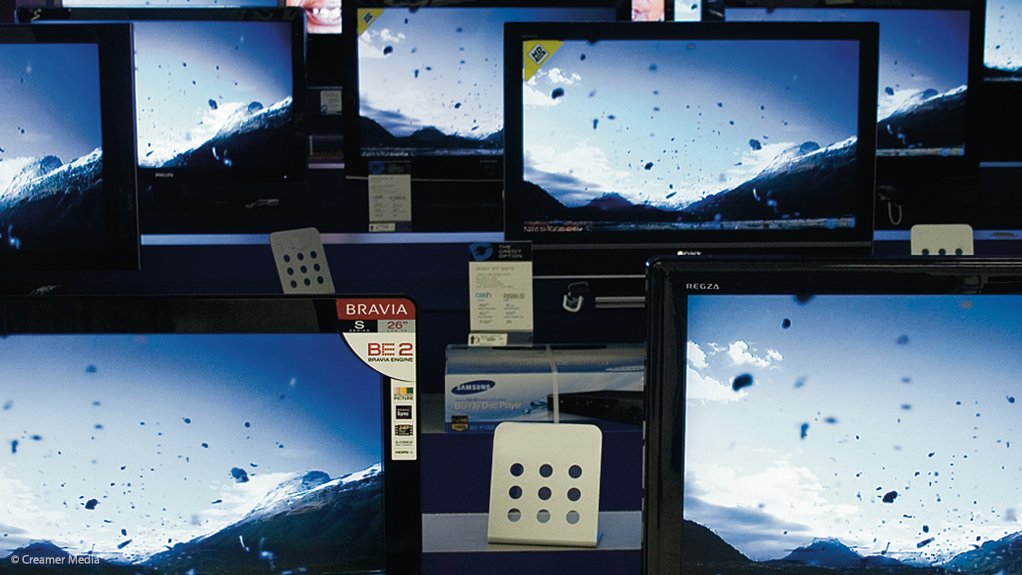Communications Deputy Minister Stella Ndabeni-Abrahams says the Department of Communications has the responsibility of ensuring that South Africans migrate from the analogue to digital world, with the help of media and government communicators.
Deputy Minister Ndabeni-Abrahams was addressing media on Thursday as part of a series of stakeholder engagement meetings she held in Kimberley, Northern Cape.
The Deputy Minister said once Cabinet has approved the digital migration policy, media and government communicators should be ready to roll out the programme to create public awareness.
Through digital migration, South Africa will switch from analogue to digital as a means of broadcasting TV and radio signals. Prior to the 1990s, broadcasting transmitted sound and video through airwaves by analogue signals.
While this method worked well, it needed a lot of space on the frequency spectrum. Both television and radio are allocated spectrum in each band. This means a different and unique frequency is allocated for each radio and TV service. This is not a very efficient way of using spectrum to deliver multi channels services.
With digital broadcasting, sound, video, text and still images can be transmitted using a technology that allows for information to be compressed, thus saving radio spectrum.
The result is better quality sound and videos on both radio and TV. Digital migration will see television being able to carry more channels and access to TV being improved for people, no matter where they are in the country.
Once the policy is approved, it will be rolled out through the SABC, Media Development and Diversity Agency (MDDA), Independent Communications Authority of South Africa (ICASA), Brand SA and the Films and Publication Board, all of whom are entities under the Department of Communications.
“Come June 2015, we would have started the process. It is our responsibility to make sure that everybody in this country has access to broadband,” Deputy Minister Ndabeni-Abrahams said.
The Deputy Minister did not give a deadline for full implementation, saying a number of processes had to unfold, including raising public awareness and explaining how this is going to impact people’s lives.
Engaging the media
Deputy Minister Ndabeni-Abrahams urged media to take an interest in understanding government policies and also to feel free to advise government on how it can implement its policies better.
The Deputy Minister urged media to find their role in building a knowledge-based society, which is taking shape at the same time as the digital revolution.
She said media must remain relevant to their target audience and play a role in helping government implement policies which benefit South Africans.
She said the concept of community media was a government initiative, and that it was established to keep the public informed about government programmes and plans.
Members of the media who met with the Deputy Minister were given a platform to ask questions and raise their concerns regarding the state of media in the province, as well as challenges they experienced in working with government.
Currently, there are seven community radio stations in five district municipalities in the Northern Cape.
Members of the media told the Deputy Minister that while the Northern Cape was the largest province, it had a small, scattered population.
They said the imbalance between space and population made it difficult for them to reach certain parts of the province and to accommodate all the languages spoken there.
The National Community Radio Forum (NCRF) chair in the province, Garth Damerell, said communities across the province embraced and trusted community media because they owned it.
“I must say that we are very lucky in the sense that we get a lot of support from government and I know as a member of the community and media that government has a good story to tell,” said Damerell, who is also a station manager at Radio Teemaneng.
He said Radio Teemaneng broadcast in four different languages, including English, Afrikaans, Setswana and isiXhosa.
He said such engagements with the Department of Communications will help the NCRF to grow radio stations in the province and increase the capacity of the people working at those stations.
“We will look at how we can improve the standard of community radio in the province,” he said, adding that at times it was difficult to keep the stations up and running.
“We need to look at a model that speaks specifically to the Northern Cape,” said Damerell.
The Deputy Minister also held another stakeholder engagement with government communicators in the province.
EMAIL THIS ARTICLE SAVE THIS ARTICLE
To subscribe email subscriptions@creamermedia.co.za or click here
To advertise email advertising@creamermedia.co.za or click here











